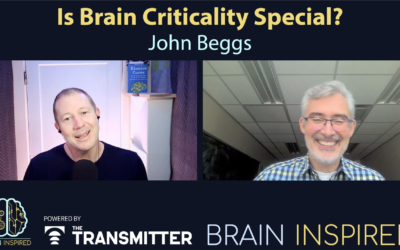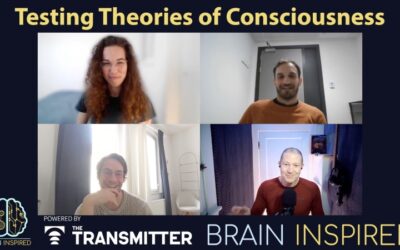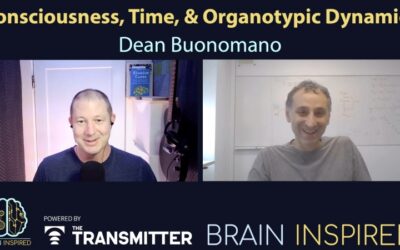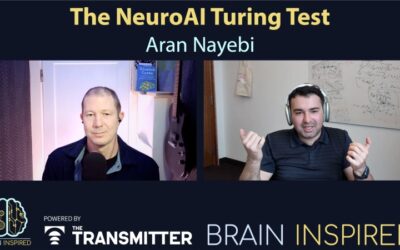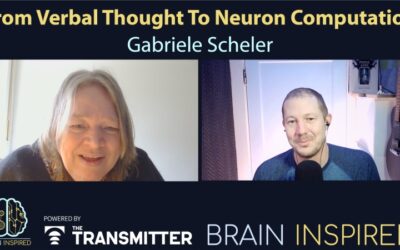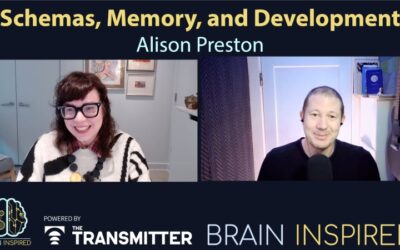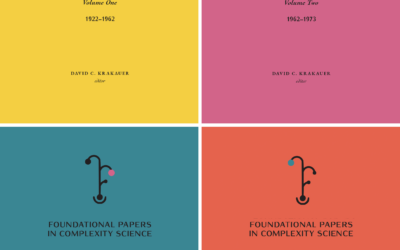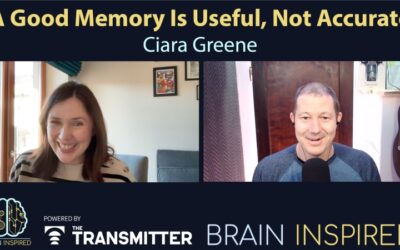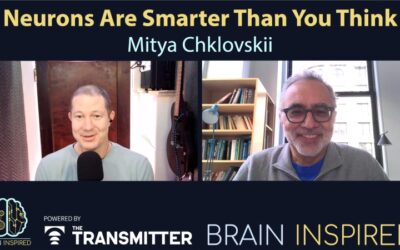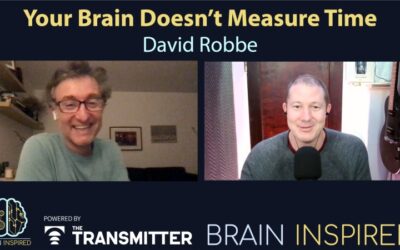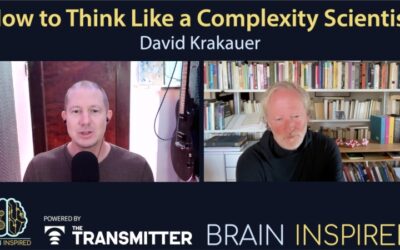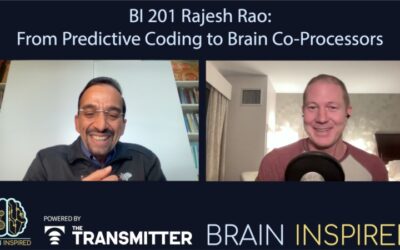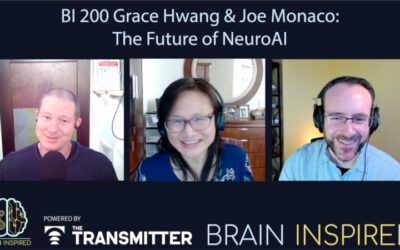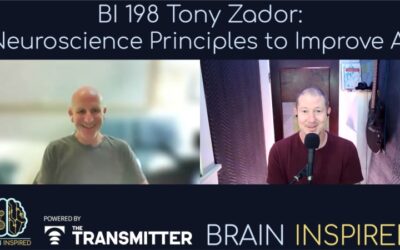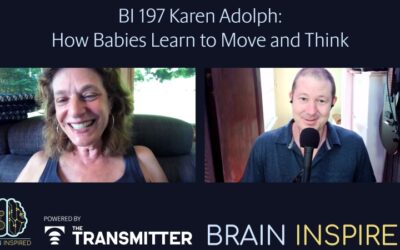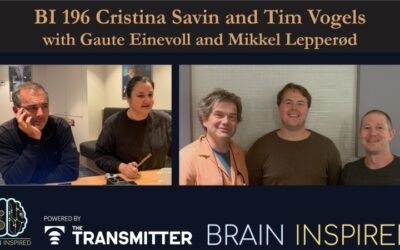All Episodes
BI 212 John Beggs: Why Brains Seek the Edge of Chaos
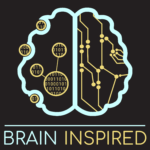
You may have heard of the critical brain hypothesis. It goes something like this: brain activity operates near a dynamical regime called criticality, poised at the sweet spot between too much order and too much chaos, and this is a good thing because systems at criticality are optimized for computing, they maximize information transfer, they maximize the time range over which they operate, and a handful of other good properties.
BI 211 COGITATE: Testing Theories of Consciousness

Rony Hirschhorn, Alex Lepauvre, and Oscar Ferrante on testing integrated information and global neuronal workspace theories of consciousness.
BI 210 Dean Buonomano: Consciousness, Time, and Organotypic Dynamics

Dean Buonomano on time in neuroscience vs. physics, integrated information theory, testing timing dynamics in organotypic brain slices, and how AI doesn’t need neuroscience to continue to progress.
BI 209 Aran Nayebi: The NeuroAI Turing Test

Aran Nayebi on NeuroAgents, reverse-engineering brains to build autonomous agents, and an update to the Turing test for NeuroAI.
BI 208 Gabriele Scheler: From Verbal Thought to Neuron Computation

Gabriele Scheler co-founded the Carl Correns Foundation for Mathematical Biology. In fact, Carl Correns was her great grandfather, one of the early pioneers in genetics. Gabriele is a computational neuroscientist, whose goal is to build models of cellular computation, and much of her focus is on neurons.
BI 207 Alison Preston: Schemas in our Brains and Minds

Ali Preston on how the neuroscience of schemas, which help us form memories, integrate and differentiate information, and make predictions.
Quick Announcement: Complexity Group
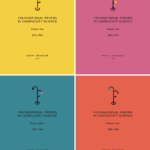
/
BI 206 Ciara Greene: Memories Are Useful, Not Accurate

Ciara Greene discusses how human episodic memory works, and why our common assumptions about the role of memory
BI 205 Dmitri Chklovskii: Neurons Are Smarter Than You Think

Dmitri Chklovskii believes all your neurons are smart controller agents, and understanding this will transform neuroscience and how we build artificial intelligence.
BI 204 David Robbe: Your Brain Doesn’t Measure Time

My guest today, neuroscientist David Robbe, believes we don’t rely on clocks in our brains, or measure time internally, or really that we measure time at all. Rather, our estimation of time emerges through our interactions with the world around us and/or the world within us as we behave.
BI 203 David Krakauer: How To Think Like a Complexity Scientist

David Krakauer is the president of the Santa Fe Institute, where their mission is officially “Searching for Order in the Complexity of Evolving Worlds.” When I think of the Santa Fe institute, I think of complexity science, because that is the common thread across the many subjects people study at SFI, like societies, economies, brains, machines, and evolution. David has been on before, and I invited him back to discuss some of the topics in his new book The Complex World: An Introduction to the Fundamentals of Complexity Science.
BI 202 Eli Sennesh: Divide-and-Conquer to Predict

Eli Sennesh on bridging predictive coding and NeuroAI
BI 201 Rajesh Rao: From Predictive Coding to Brain Co-Processors

Rajesh Rao shares his updated theory on how the cortex could implement active predictive coding. Predictive coding shares theoretical roots with predictive processing, the bayesian brain, active inference, and the free energy principle, all of which are general theories of brain function.
BI 200 Grace Hwang and Joe Monaco: The Future of NeuroAI

Joe Monaco and Grace Hwang co-organized a recent workshop I participated in, the 2024 BRAIN NeuroAI Workshop. You may have heard of the BRAIN Initiative, but in case not, BRAIN is is huge funding effort across many agencies, one of which is the National Institutes of Health, where this recent workshop was held. The BRAIN Initiative began in 2013 under the Obama administration, with the goal to support developing technologies to help understand the human brain, so we can cure brain based diseases.
BI 199 Hessam Akhlaghpour: Natural Universal Computation

Hessam Akhlaghpour is a postdoctoral researcher at Rockefeller University in the Maimon lab. His experimental work is in fly neuroscience mostly studying spatial memories in fruit flies. However, we are going to be talking about a different (although somewhat related) side of his postdoctoral research. This aspect of his work involves theoretical explorations of molecular computation, which are deeply inspired by Randy Gallistel and Adam King’s book Memory and the Computational Brain.
BI 198 Tony Zador: Neuroscience Principles to Improve AI

We’re in a huge AI hype cycle right now, for good reason, and there’s a lot of talk in the neuroscience world about whether neuroscience has anything of value to provide AI engineers – and how much value, if any, neuroscience has provided in the past.
BI 197 Karen Adolph: How Babies Learn to Move and Think

Karen Adolph runs the Infant Action Lab at NYU, where she studies how our motor behaviors develop from infancy onward. We discuss how observing babies at different stages of development illuminates how movement and cognition develop in humans, how variability and embodiment are key to that development, and the importance of studying behavior in real-world settings as opposed to restricted laboratory settings.
BI 196 Cristina Savin and Tim Vogels with Gaute Einevoll and Mikkel Lepperød

/
